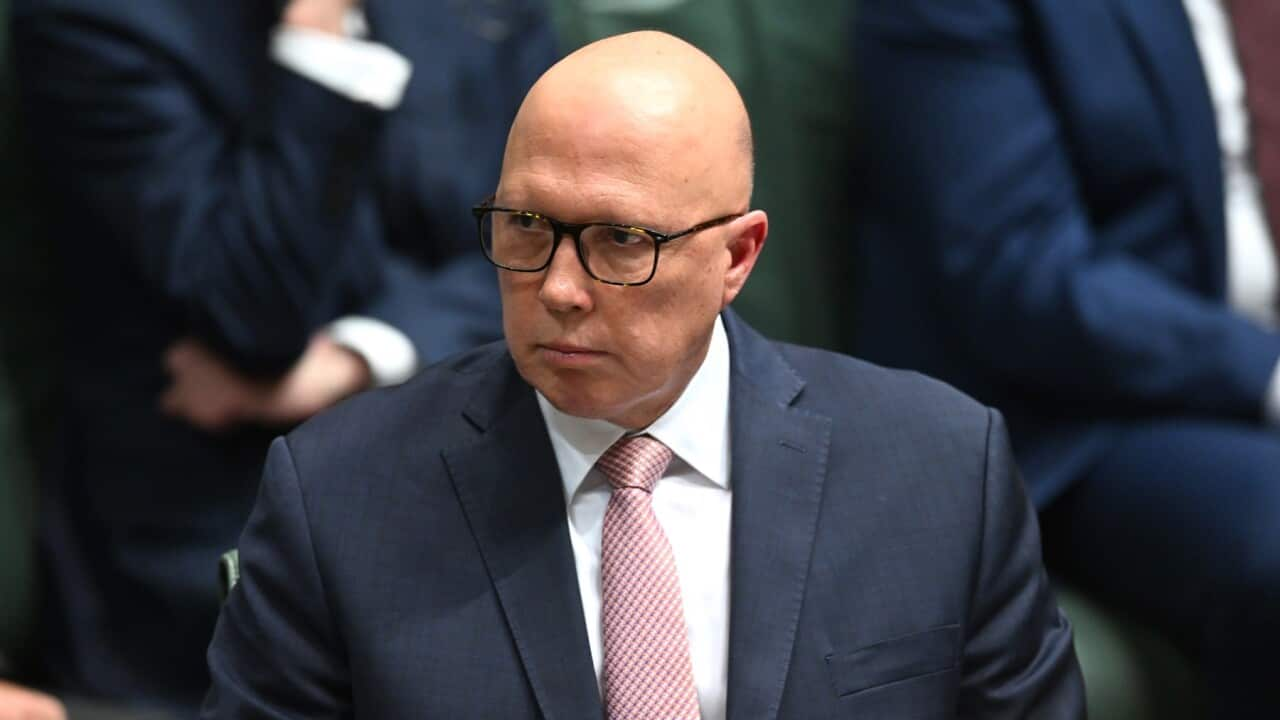TRANSCRIPT:
"I don't think people should be coming in from that war zone at all at the moment. It's not prudent to do so and I think it puts our national security at risk."
A strengthened position from the coalition - Peter Dutton telling Sky News that no people leaving Gaza should be allowed into Australia.
The comments come after Australian Security Intelligence Organisation director-general Mike Burgess told ABC's Insiders program that support for Hamas would not automatically disqualify people from getting a visa.
"If they're giving financial support or material aid, that can be a problem and obviously we take each case on its merits and the context of the information we have before us. If it’s just rhetorical support and they don't have an ideology or support for a violent extremism ideology, then that's not a problem."
Mr Burgess also said that the security agency was not conducting checks on everyone fleeing the conflict - only cases referred to them.
ASIO is not the sole government agency responsible for vetting visa applications.
Checks primarily occur through the Department of Home Affairs during the visa application process in tandem with other agencies when requiring additional support.
Mr Dutton says the standard process isn't good enough under the circumstances.
"I just think every Australian would be shocked to think that the government's bringing in people from a war zone and that ASIO is not conducting checks and searches on these people. We're living in a heightened security threat environment."
Prime Minister Anthony Albanese says nothing has changed in terms of vetting.
"If the Leader of the Opposition doesn't have confidence in that system, he should say so. It's exactly the same system that was in place when the Leader of the Opposition was the Minister for Immigration, who presided over these issues."
More than 1,000 people have fled Gaza since the start of the Israel/Hamas war.
Suzan Wahhab is the President of Palestinian Christians in Australia, a group that has been supporting some of those fleeing the conflict.
She says the comments have real impact in the community.
"People are hurt because as you can understand there are people who have gone through 10 months of the war. We've got people who have fled with just clothes on their back, they've lost everything, and then they come here and they're being told they're not welcome in Australia... rather than being embraced and welcomed just like the Ukranian refugees, Syrian refugees, Iraqi refugees. We are not different. We are people too."
But Liberal Senator Michaelia Cash has backed the opposition leader's position, saying the unique conflict requires a unique response.
"These are very unusual circumstances. You talking about Hamas, a listed terrorist organisation that has committed atrocities that quite frankly have shocked the world. You have in Peter Dutton an opposition leader who is prepared to stand on principle and who is prepared to stand up for Australia, for Australians, and to back in our values. So yes, I do agree with a ban on those coming in from Gaza."
Greens senator David Shoebridge has condemned the comments.
"The comments this morning from Peter Dutton about the Palestinian people are nothing short of despicable. Only a person with no heart, no ears, no eyes, could travel to the other side of the globe to witness a genocide and come back here and wish to double down on persecuting the victims."
Western Sydney MP Jason Clare says Dutton's comments are harmful for the community.
"I'd invite Peter Dutton to come to my electorate and meet the people who've come here from Gaza. There's more than 1000 people from Gaza here now. These are people who've had their home blown up, who've had their school blown up, who've had their hospital blown up, in some cases, have had their kids blown up, and these are people who are trying to rebuild their lives here in Australia. Come and visit them, look them in the eyes, and I think that you'll learn a bit."
He says for many people, the conflict is close to home.
"The war in Gaza feels like a world away for most of us, but in my community, it's much, much closer to home and the dead bodies that we see on our TV screens almost every night. For the people in my electorate, those dead bodies have names. You know, sometimes it's mum, sometimes it's dad, they're family, brothers, sisters, children, and so they they feel it intensely."













